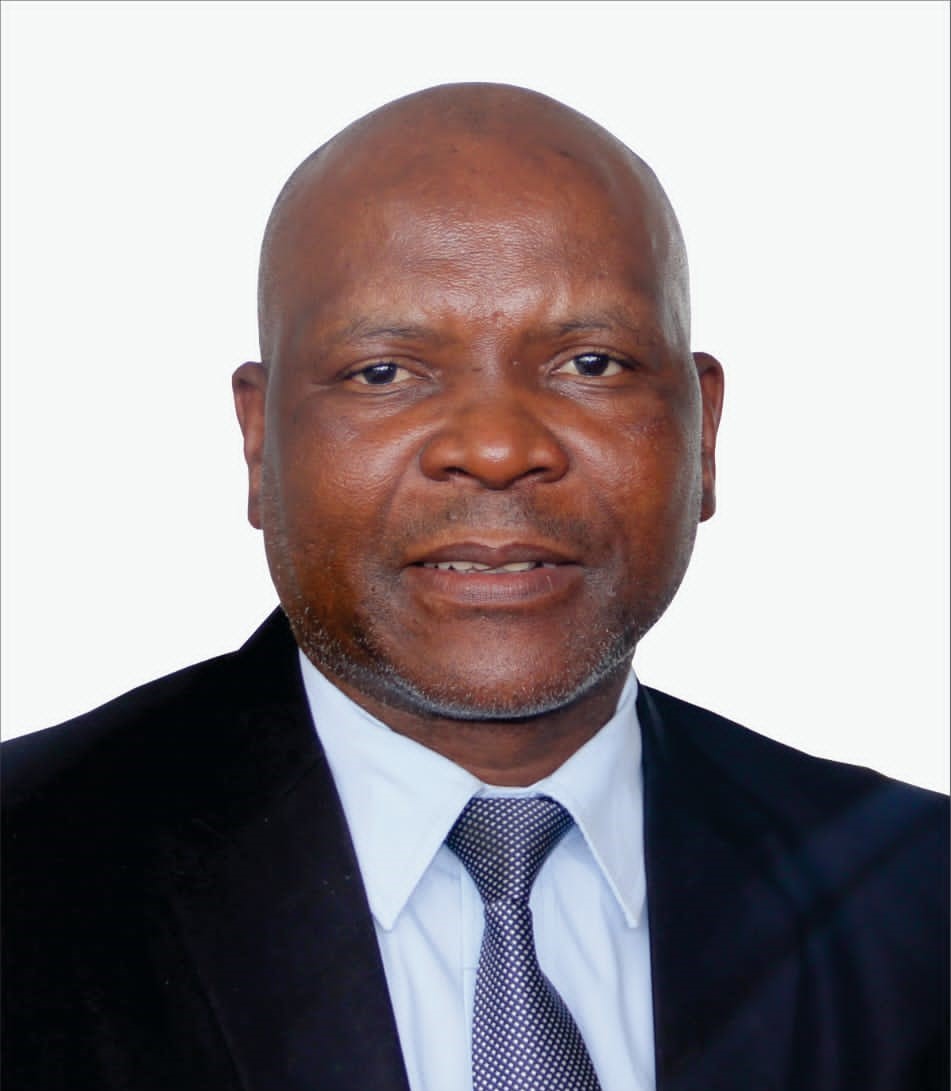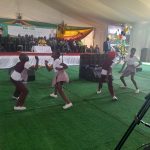Departments
The Ministry of Primary and Secondary Education , Zimbabwe
The ministry is composed of several key departments, each tasked with specific responsibilities to ensure the effective delivery of educational services across the nation.
These departments work in collaboration to ensure the effective delivery of educational services, the continuous improvement of the education system, and the achievement of the country’s educational goals and priorities.
Building Generations
Lorem ipsum dolor sit amet, consectetur adipiscing elit. Ut elit tellus, luctus nec ullamcorper mattis, pulvinar.
History Emphasis
Lorem ipsum dolor sit amet, consectetur adipiscing elit. Ut elit tellus, luctus nec ullamcorper mattis, pulvinar.
Economic Outcomes
Lorem ipsum dolor sit amet, consectetur adipiscing elit. Ut elit tellus, luctus nec ullamcorper mattis, pulvinar.
The Team
Our Principals

Hon. Torerayi Moyo
Minister for Primary and Secondary Education

Hon. Angeline Gata
Deputy Minister for Primary and Secondary Education

Moses Mhike
Secretary for Primary and Secondary Education
Sustainability
Committed To Keep People Healthy & Safe
We Follow Best Practices
- Sustainablility
- Project On Time
- Modern Technology
- Latest Designs
DEPARTMENTS AND UNITS
FUNCTIONS OF THE DEPARTMENT
The Department of Human Resources and Discipline in the Ministry of Primary and Secondary Education serves the following functions:-
- Supporting the Ministry of Primary and Secondary Education’s (MoPSE) Heritage-based curriculum by attracting, developing and retaining top talent through effective selection and recruitment of teaching and non-teaching staff
- Identifying staff’s training needs and facilitating comprehensive training and development programmes
- Implementing Teacher Capacity Development programmes in liaison with the Ministry of Higher and Tertiary Education and other international institutions of higher education
- Facilitating training of teaching and non-teaching staff in the Management of Information Communication Technology (ICT) in order to meet government’s Vision 2030 of digitising the country.
- Maintaining positive employment relations through conflict resolution
- Supporting staff well-being through health and welfare programmes
- Managing salary administration and the conditions of service for all staff members within the Ministry
- Developing and implementing human resource plans in line with the Ministry’s strategic objectives
- Optimising resource allocation in order to meet the Ministry’s organisational goals and objectives
Creating a work environment that supports employee growth, innovation and collaboration with the goal of enhancing the quality of primary and secondary education for our country.
BACKGROUND OF THE DEPARTMENT
The Department of Learner Welfare and Psychological Services (LEPS) is as department in the Ministry of Primary and Secondary Education which has three sections; the Learner Welfare Services Section, Psychological Services Section and the Special Needs Education Section. Its overall mission is to facilitate and deliver responsive pupil support services for equitable, inclusive access to; and optimal achievement in quality twenty-first century Infant, Junior and Secondary Education
FUNCTIONS
The functions of each of the three sections will be explained separately below:-
Learner Welfare Services Section
- Mainstreaming the provision of at least one hot, balanced school meal for every pupil on every school day through the implementation of the home-grown School Feeding Programme
- Coordinating the activities of Menstrual Health Management structures at all schools and ensuring the effective, efficient distribution of sanitary wear to eligible beneficiaries
- Ensuring that all schools comply with regulations and make practical arrangements for the provision of protective, safe, hygienic and pupil- friendly environments for all
- Liaising with the Ministry of Public Service Labour and Social Welfare on social safety nets for disadvantaged pupils
- Spearheading the Ministry’s implementation of the Zimbabwe School Health Policy and liaising with the Ministry of Health and Child Care and relevant stakeholders on school health programming
- Ensuring effective coordination with other Ministries to ensure the effectiveness of social safety nets and other intervention for the safety and protection of learners in school environments and other organised learning activities elsewhere.
Psychological Services Section
- Information dissemination for full awareness and utilisation of the Schools Psychological Services referral protocol by all schools and the general public
- Provision of free psycho-educational assessment and intervention services to pupils in schools, including early identification and intervention support for children of school-going age who may not be attending schools .
- Overall coordination of the remedial , speech, language and communication programme to ensure optimum learning outcomes for all .
- Operating District Learning Support Services Resource Centres(DLSSRCs) in all Districts
- Maintenance of the Learning Support Services Client Profile Database on all pupils
- Coordinating the implementation of the School-based Lifeskills Emowerment Programme , including the provision of Guidance and Counselling services at every school
- Promoting equitable , ,inclusive participation in career guidance and counselling by all pupils
- Coordinating the activities of school-based Child Protection Committee
- Capacitating and supporting all schools to provide psychosocial support to ensure the wellbeing of all their pupils.
- Ensuring that pupils are aware of and actively participate in activities to safeguard their rights. Such activities include the prevention and early reporting of cases of bullying, all forms of child abuse as well the provision of support services for affected pupils.
Special Needs Education Section
- Organising and coordinating the provision of quality disability-responsive special educational programmes at the Infant, Junior and Secondary education levels
- Ensuring the full capacity utilisation of the national Braille printing Press for the provision of quality of low vision and braille support services to pupils with visual impairment and their teachers
- Provision of quality hearing assessments and decentralised outreach audiological services to all schools through the National Educational Audiology Laboratory
- In collaboration with the Curriculum Development and Technical Services Department of the Ministry, contributing to the development of sign language and braille teaching and learning resource materials
- Coordinating teacher capacity-strengthening on disability-inclusive pedagogical skills and application in the regular classroom.
- Facilitating the participation of adults with disabilities in all adult basic education and the Non Formal Education programme
- Active liaison with the Schools Inspectorate Division of the Ministry in ensuring quality teaching and learning at special schools and Resource Units for pupils with disabilities in mainstream school settings
FUNCTIONS
Provide, promote and develop accessible, quality Infant, Junior, Secondary and Non – Formal Education.
- Provide and promote competence-based formative assessment to achieve exit profiles targeted by the curriculum.
- Identify and address training needs for effective implementation of the curriculum.
- Facilitate the acquisition and equitable distribution of the teaching and learning materials and promote sound resource management.
- Formulate, implement and review policies and programmes for efficient and effective implementation of the curriculum.
- Strengthen the teaching of Science, Technology, Engineering, Arts and Mathematics (STEAM) including computer education, e-learning and technical vocation.
- Monitor, supervise, evaluate and facilitate the administration of national examinations in liaison with ZIMSEC.
- Supervise, monitor and evaluate the implementation of the curriculum at Infant, Junior and Secondary levels.
- Facilitate and promote the establishment and effective operation of Learning Area teacher platforms.
FUNCTIONS OF THE FINANCE AND ADMINISTRATION DEPARTMENT
The Finance and Administration Department (FAD) at the Ministry of Primary and Secondary Education performs the following roles and function:
- Coordinating the formulation and production of the Ministry’s budget
- Coordinating the formulation of the Ministry’s supportive policies
- Managing the Ministry’s financial resources
- Providing general administration of transport services to the Ministry
- Management of the Ministry’s assets
FUNCTIONS OF THE DEPARTMENT OF CURRICULUM DEVELOPMENT AND TECHNICAL SERVICES
The Department is composed of two divisions; the Curriculum Development Unit (CDU) and E-learning and Technical Services Unit. CDU has four sections led by deputy directors; the Humanities and Languages, Science and Mathematics, Physical Education and Arts, and TVET. The E-learning and Technical Services Unit is led by a director with two deputy directors.
Functions of the Department of Curriculum Development and Technical Services are as follows:-
- Conducting curriculum research, development and review
- Promoting culturally relevant and gender sensitive curriculum
- Developing and distributing print and digital teaching and learning materials
- Monitoring and evaluating educational materials and equipment
- Monitoring alignment of assessment to the curriculum
- Developing and promoting policies guiding curriculum development and implementation
- Developing e-content for radio and TV broadcasting and other streaming such as those on Ministry platforms and social media
BACKGROUND
Procurement Management Unit is mandated to support the Ministry’s strategic objectives by ensuring value for money (VFM) through the provision of quality goods and services following a professionally transparent, effective, efficient and timely procurement process within the confines of the Public Procurement and Disposal of Public Assets Act chapter 22:23 (PPDPAA), Procurement Regulations, 2018, Public Finance and Management Act and relevant Statutes that may be issued from time to time.
PMU Mission
To support the Ministry’s strategic objectives by developing and managing competitive advantage initiatives that drive towards achieving Vision 2030. Procurement Management Unit is dedicated to the acquisition of goods, works and services using the most effective and efficient procurement processes and procedures for the benefit of the public good.
Legal Framework Guiding Procurement
- Public Procurement and Disposal of Public Assets Act (Chapter 22:23)
- Public Procurement and Disposal of Public Assets (General) Regulations, 2018 (S.I. 5 2018)
- Public Finance Management Act (Chapter 22:19)
- The Prevention of Corruption Act Chap 9:16
- Other relevant instruments which may be issued from time to time.
RESPONSIBILITIES
- Preparation of the Ministry’s Annual Procurement Plan
- Adoption of appropriate procurement method.
- Preparation of bid documents in compliance with the Public Procurement and Disposal of Public Assets Act chapter 22:23
- Conduct Bidding processes including pre-bid meetings, clarifications and the receipt and opening of bids.
- Managing the bidding process,.
- Maintaining relationships with key suppliers and evaluating their performance
- Negotiate the best deal for pricing and supply contacts;
- Conduct Market consultation to achieve value for money
- Supervising the Ministry ‘s evaluation Committee
- Preparation of evaluation reports and contract award recommendation
- Submitting all evaluations recommendations to the accounting officer
- Preparing contract documents and amendments.
- Managing procurement contracts
- Preparation of procurement reports.
- Provision of technical guidance in work requirements and methods
- Maintain records of purchases, pricing and other important data;
- Disposal of redundant/ excess or unserviceable assets
- Exercising any other functions conferred or imposed on the unit by its accounting officer.
Guiding Principles
The Procurement Management Unit upholds the following principles,
- Transparency :-Provision of clear and accurate information to all bidders without discrimination.
- Value for Money :- Execute each procurement transaction based on value for money throughout the procurement life cycle.
- Competition :- Give all eligible and qualified bidders given equal opportunity to compete both financial and non-financial aspects of the procurement requirement without discrimination.
- Accountability :- Responsible and answerable to the actions and decisions that are undertake in relation to procurement and for the resulting outcomes.
- Ethics :- Ensure that all parties involved in purchasing decisions act with integrity, transparency, and fairness to the ideal moral standards.
- Confidentiality :- To treat all procurement proceedings with the highest degree of confidentiality and not to disclose any information without authority.
Functions
- Developing the Ministry of Primary and Secondary Education’s (MoPSe) Communication and Advocacy Strategy
- Enhancing and maintaining effective communication and advocacy
- Implementing feedback mechanisms so as to assess stakeholder views of MoPSE’s value addition
- Carrying out education campaigns on MoPSE’s mandate and implementation, ie
- Improving the capacity of schools to achieve their teaching and learning objectives
- Advancing the role of education in governance and state-building
- Producing and disseminating knowledge on education matters in order to inform policy and legislation formulation, foster transparency and accountability and improve learning outputs
- Providing a voice for education on regional and global platforms and influence the international education debate; and
- Developing and supporting partnerships between MoPSE and development partners
- Drafting Cabinet updates
- Drafting responses to Parliament
- Creating , nurturing and sustaining relationships with stakeholders
- Satisfying stakeholders’ satisfaction
- Maintaining a positive national and international image and enhancing the reputation of MoPSE
- Building MoPSE brand recognition and image through consistent use of corporate Ministry identity
- Encouraging more development partners to voluntarily support MoPSE operations
- Driving organisational confidence
- Preparing media interviews
- Developing messages to convey to MoPSE stakeholders
- Suggesting new initiatives to keep the Ministry on the cutting edge of communication with its stakeholders
- Writing and distributing news releases and responding to media inquiries
- Planning for all news conferences
- Monitoring the print and electronic media in order to identify what the media is saying about the Ministry
- Managing MoPSE website and social media presence and responding to inaccurate posts and requests for information
- Responding to calls and emails from stakeholders about the Ministry’s plans and activities
- Preparing speeches and presentations for senior management
- Managing the Ministry’s blogs
- Managing the Client Charter
- Managing the Client Satisfaction Survey
- Managing the Ministry’s Toll-Free line
- Developing communication materials such as fliers, information brochures and banners
FUNCTIONS OF THE LEGAL SERVICES DEVISION
- Drafting Court pleadings and giving instructions to the Attorney General’s Office on behalf of the Ministry of Primary and Secondary Education in response to Court applications in liaison with relevant
- Assisting officers from the Attorney General’s office before and during court proceedings on behalf of the Ministry.
- Drafting Legal documents and giving opinions on Draft Bills and Regulations.
- Conducting research and writing opinions on any legal issue concerning the Ministry of Primary and Secondary Education; including Acts administered by the Minister and their subsidiary Legislation, Contracts, Policies, Circulars, General Letters, Agreements and International Conventions.
- Preparing legislative drafts for review or amendment of parent Acts, Bills, and Statutory Notices as may be required by the Ministry and giving instructions to the Attorney General’s Office concerning the same.
- Analysing court judgments and making appropriate recommendations on implementation to the relevant departments and Public Service Commission on behalf of the Ministry.
- Processing memoranda of Understanding/ Agreement between the Ministry and various co-operating partners in liaison with the Attorney General’s office.
FUNCTIONS AND ROLES OF THE DIVISION
- Policy Formulation
- Oversee the formulation of policies, strategies and programmes on gender, disability and wellness.
- Audit Ministry policies, procedures and systems to ensure that the working environment upholds employee wellbeing as a culture and develop appropriate wellness programs.
- Advocate for Gender, Inclusion and Wellness
- Advocate for gender, inclusivity and wellness mainstreaming in the Ministry programs and projects.
- Advocate for a healthy workplace culture by encouraging staff to take breaks, promoting physical activity, and providing healthy food options.
- Promote diversity in leadership positions within the Ministry, recognizing that diverse leadership can lead to greater innovation and creativity.
- Ensure that both genders are equally represented at every level in the Ministry.
- Address power imbalances that may exist within the Ministry such as those related to gender and disability.
- Address unconscious bias among staff and stakeholders, providing training and resources on how to recognize and mitigate bias in the Ministry.
- Promote work-life balance among staff, recognizing that wellness and productivity are interconnected.
- Advocate for the consideration of specific requirements of staff members with all forms of disability.
- Encourage the use and development of forms of communication suitable for persons with physical or mental disabilities.
- Promote accessibility in the workplace by ensuring that public utilities in the Ministry are accessible and do not discriminate against persons with disabilities.
- Coordinator of gender, disability and wellness programs
- Coordinate the implementation of policies and programmes on Gender mainstreaming, the welfare of persons with disabilities as well as wellness programs in the Ministry.
- Ensure that all activities, plans and programs in the Ministry are inclusive and gender mainstreamed at all times.
- Advisor to the Accounting Officer on gender, disability and wellness programs
- Advise the Secretary on gender, disability and wellness issues requiring special attention in the Ministry.
- Promote and enhance awareness within the Ministry
- Facilitate sensitisation workshops for staff and stakeholders on issues related to gender mainstreaming, inclusivity, and wellness.
- Develop communication strategies to promote awareness of initiatives by creating newsletters, social media campaigns, and other communication channels to keep staff and stakeholders informed.
BACKGROUND OF THE DEPARTMENT OF NATIONAL LIBRARY AND DOCUMENTATION SERVICE (NLDS)
The Department of National Library and Documentation Service (NLDS) was established as a quasi-government parastatal through an Act of Parliament of 1985 (attached). Then came the government’s programme of restructuring parastatals and NLDS became a department in the Ministry of Primary and Secondary Education.
NLDS functions were derived from the above mentioned Act and most of them need to be revised in order for the department to fit into the 21st Century Library services.
THE FUNCTIONS:
- To promote and advocate for the establishment and development of schools, government, and public libraries
- To train librarians with basic contemporary library skills
- To monitor and evaluate a high standard library services in Zimbabwe
- To collect, preserve and make available Zimbabwe’s distinctive and diverse documentary heritage
- To promote sharing of information among libraries
- To coordinate and undertake activities such as meetings, conferences, workshops, visits, advocacy, marketing in a way cooperate with library associations and consortia worldwide
- To register affiliate libraries
The Department of National Library and Documentation Service is housed at Ministry of Primary and Education Offices at Mount Pleasant, and the main Library is in Bulawayo, the National Free Library.
325
Scholarships Disbursed
1525
Teachers & counting
302
Successfully Project
25
Average Passrate 2023
Trust and Worth
Testimonials







